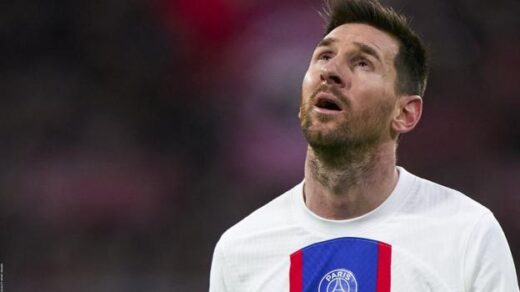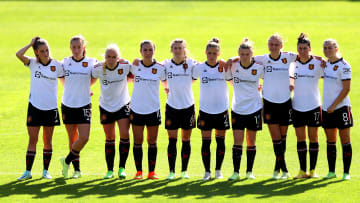Spurs seem to be unravelling before our very eyes. How can they stem this before the situation spirals completely out of control?
Not that anybody involved has much of a right to complain, but it’s open season on Spurs. Their abject performance at Newcastle United warranted all the brickbats slung their way and yes, yes it is cathartic for supporters to be furious at not only the team’s tail-off over the course of this season, but also the way in which it has happened.
Too frequently this season, Spurs have played like a team who don’t seem to care whether they win matches or not, and it should be obvious that this is intolerable for fans who not only care very deeply about winning, but also – in tens of thousands of cases – pay through the nose for their season tickets.
But much as all this venting may be good for the soul, there does come a point at which you have to stop looking at the past and the present, and have to start thinking about the future.
The end of the Premier League season is just a few weeks away, and it is already very clear that this club needs major renovation work once they’ve dragged themselves over the finishing line this season. But what would this look like, and how can Spurs get themselves anything like ‘back on track’ while all this catastrophising is going on?
1) Spurs need to decide on their overall football structure. But that’s an issue that isn’t entirely straightforward, given that the club’s decision-making seems to have become more reactive than proactive.
Chairman Daniel Levy’s loyalty to Fabio Paratici as he was banned from football in Italy, then worldwide, and then had his appeal against these bans rejected, has been a major misstep. Paratici found a couple of decent signings, but his record can hardly be described as ‘stellar’ to anything like the extent that might have justified Levy repeatedly acting like a bulletproof vest for him.
It is clear that Cristian Stellini is out of his depth managing in the Premier League. His post-match comments after the Newcastle game, that their performance was “the worst I have seen”, as though he was just a bystander at a slow motion car crash and not, well, responsible himself for picking the team and setting them up to play, were telling.
Spurs may or may not be stuck with him until the end of this season. He could be relieved of his duties now and replaced by Ryan Mason, but everything about the current squad seems so fractured that making this sort of decision now might not even make that much of a difference. Rather than sweating on the details of the next three or four weeks, Spurs would be better advised to look towards a root and branch rebuild of their playing side.
2) When this structure is finalised, Spurs need a new manager who is well suited to it. It is looking unlikely that Mauricio Pochettino will be returning to the club while Daniel Levy is still running the show. He may have been the best choice. He may have been a necessary choice. But it should also be perfectly evident by this juncture that he is not a choice that Levy wants to take, and recent discussions between Pochettino and Chelsea may have taken that decision out of his hands regardless.
That ship has likely already sailed, and Levy had better be keeping absolutely everything crossed that he isn’t successful there. But who should the new manager be? It’s easy to draw up a list of storied yet disparate names who might sound impressive on paper, but the ultimate answer to this question is entirely dependent on what structure they decide upon.
What matters is that this manager is backed. This doesn’t mean ‘has money thrown at him’ (although such is the state of their playing squad at the moment that this will likely be necessary). It means having the right manager for the right structure, it means backing them with the players they need, and it means having a little patience should it take a little time to gel. Spurs supporters can do patience. It’s kind of necessary. But at this stage, they need to see that the messes of the last three or four years are being rectified, and that the club is actively seeking to change.
3) By the start of next season, Harry Kane will be 30 years old and with one year left on his contract, so Spurs need to make firm decisions over what happens next with a player who has come to represent the very best of the club for much of the last decade. If they are to ‘cash in’ on Kane’s obvious talents, this summer is their last opportunity to do so.
The player himself has remained fairly tight-lipped about his future intentions, but it’s clear that he is not averse to staying at the club so long as they’re coming close to matching his ambitions. It has been reported that Daniel Levy is extremely reluctant to sell him to another Premier League club, and again it isn’t difficult to see why. Spin forward to the end of next season and it’s not difficult to imagine anger rising again among supporters should Kane end his first season away from the club involved in winning trophies elsewhere.
So, another decision has to be made. To sell or not? This is a decision that can only truly be made should they start to receive offers for him during the summer. How much is being offered? What does he want? What might it cost to persuade him to see out his playing career at The Tottenham Hotspur Stadium, and is this a cost that the club can justify as this career reaches what may be the twilight years?
Such has been the level of dysfunction on display that the attitude of fans seems to be shifting towards resignation at the inevitability of it all. This doesn’t have to be a disaster. Richarlison has been woefully misused this season. He hasn’t just forgotten how to play football, and perhaps the team’s attacking formation could be reshaped around him in Kane’s absence.
4) It is also very obvious that the transfer mistakes of the last few seasons need to be rectified, and that the playing squad needs something of a clearout. One of the most revealing comments made by Antonio Conte during the tirade that eventually resulted in his sacking was that Spurs players are treated as a “protected species”.
When Spurs do get round to bringing in a new manager, he needs to have the authority to offload the players that he doesn’t want or believes may have a detrimental effect on the mood around the training ground or changing room. There is a lengthy list of positions for which Spurs need either reinforcement or a complete clean sweep, so actually get on with it and do it for once, rather than sinking back into the weirdly passive mode that the club has seemed to be in for so much of the last few years.
Newcastle, Arsenal and Manchester United have all proved that a revamp doesn’t have to take years and years, but this shouldn’t be taken as a demand to be back in the Premier League’s top four by the end of next season. If Spurs’ playing operation needs rebuilding from the ground up, it should take as long as it has to take, so long as there are clear signs of progress on the pitch.
The club should certainly refocus on its academy. They have a vast catchment for potential young players throughout north London and the home counties, and for all the incessant talk about the transfer market, it should be clear that having a core of players that clubs have brought through themselves can reap its own rewards. How much did Bukayo Saka cost Arsenal? How much did Marcus Rashford cost Manchester United? How much did Harry Kane cost… Spurs?
5) Daniel Levy has now been the chairman of Tottenham Hotspur for 22 years, and in that time the club has won the sum total of one League Cup. There surely has to come a point at which attention switches from the malfunctioning players and dubious managerial decisions to the person who is ultimately responsible for the overall wellbeing of the club.
Of course, the biggest single reason why managers at Spurs last 18 months while Levy has now been overseeing the club for more than two decades is that there’s no-one beyond owner Joe Lewis, who spends most of his time in the Bahamas, to sack him. There is a striking irony to the fact that Levy is the longest-serving Premier League club chairman despite such a singular lack of success on the pitch. Nice work if you can get it.
It has been said that Levy has remained in place for so long because, despite a lack of tin pots, he has continued to return handsome profits for Lewis, but the club’s owner must surely realise that these profits will be affected should the current decline not be arrested. The common denominator of the last 20 years has been Levy, who has at least been successful in delivering the club’s new stadium. Perhaps it’s time for him to move sideways to focus even more on how to wring value out of that, while not going anywhere near any of the club’s football operations.
6) Ultimately, all of the above points to one matter which really needs to be addressed before anything else. Tottenham Hotspur have to decide what they actually want to be. Are they a Big Club who want to seriously challenge for silverware? Are they a middling Premier League club looking to over-achieve on a shoestring while keeping themselves comfortably clear of relegation? Are they just an adjunct to a live entertainment venue who are only any use to ENIC for so long as they justify the existence of this glistening mega-dome on the Tottenham High Road? Because at the moment, this isn’t entirely clear.
As things stand, supporters who have stuck with the club through years of occasional growth and more regular stagnation are finally starting to lose their patience. The club could start by drastically improving their communication. Too often, public statements have a feeling of ‘mother knows best’ about them, and when those statements aren’t being made the club has a tendency to remain far too quiet for far too long.
If Tottenham Hotspur want people to pay upwards of a thousand pounds for a season ticket during a cost of living crisis, perhaps it’s time for the club to actually justify why they should do so. This doesn’t mean grandstanding, or cheap reactive decisions designed to keep just enough people onside. The time has come to stop trying to game the system and start acting like they take the ownership of a Premier League football club seriously.




